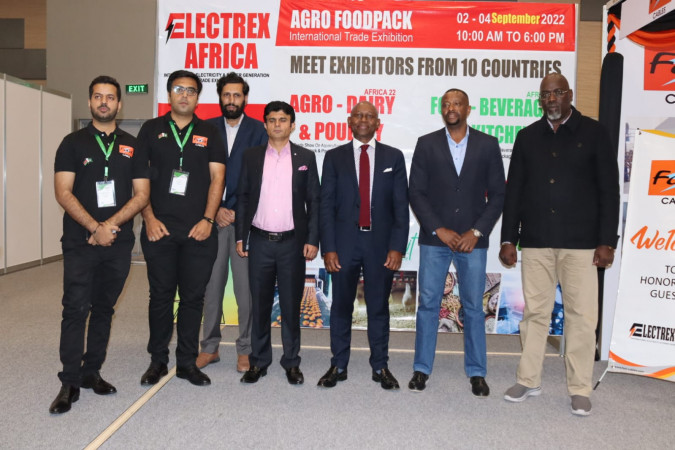Agronomists urged to modernize farming practices at ongoing Expo

Technological change should be the major driving force for increasing agricultural productivity and promoting agriculture development across the food sector, according to the Chairman of Kenya National Chamber of Commerce and Industries (KNCCI)-Nairobi County.
“Agriculture is becoming more integrated in the ago-food chain and the global market, while environmental, food safety and quality, and animal welfare regulations are also increasingly impacting on the sector.
Kenya is also ripe for fresh modelling of agricultural financing to incentivize both financiers and agricultural value chain actors to take on the investment risks,” noted Julius Opio, Chairman-KNCCI Nairobi Chapter.
Mr. Opio was speaking during the ongoing Agro-Food Pack Exhibition in Sarit Centre, Westlands which seeks to enhance the country’s agricultural sector.
Previously, the choice of technologies and their adoption was to increase production, productivity and farm incomes. Over many decades, policies for agriculture, trade, research and development, education, training and advice have been strong influences on the choice of technology, the level of agricultural production and farm practices.
Lack of access to finance has meant that small holder farmers have had to rely on unsustainable and traditional agricultural technology translating to poor quality and quantity of outputs.
The situation is further compounded by the high costs of farm inputs and the increasingly erratic weather patterns that the country has been experiencing in recent years.
Statistics show that out of an estimated 8.5 million people in Kenya engage in some form of agriculture, only 23.6 percent have access to ploughs while a paltry 12.8 percent and 4 percent have access to tractors and combined harvesters respectively (Food and Agricultural Organization (FAO) 2019).
As of 2013 for instance, over 60 percent of Kenya’s workers were employed in agricultural establishments making the sector the largest employer in Kenya, where 75 percent of Kenya’s industrial raw materials is sourced from the agriculture sector. That figure has now grown to over 70 percent.
The three-day expo ends on September 4, and will provide a platform for technology transfer, boosting inter-trade and enhancing the opening of the gateway between Kenya and other 16 countries from Europe and Asian nations.
It is indeed a boost to attracting foreign direct investments. Our goal is to tap into the Kenya government’s Big Four Agenda by providing trade and technological exchange opportunities between Kenya and the world,” said Mudasir Mohammed, MXM Exhibitors, Expo organizer – a Dubai-based event organizer.
Some of the key areas of focus covered by the AgroFoodpack Exhibition are Agro, Dairy and Poultry, Grains and Storage, Food and Flavors, Biscuits, Cakes, Packaging and processing Machines and Plastics.












